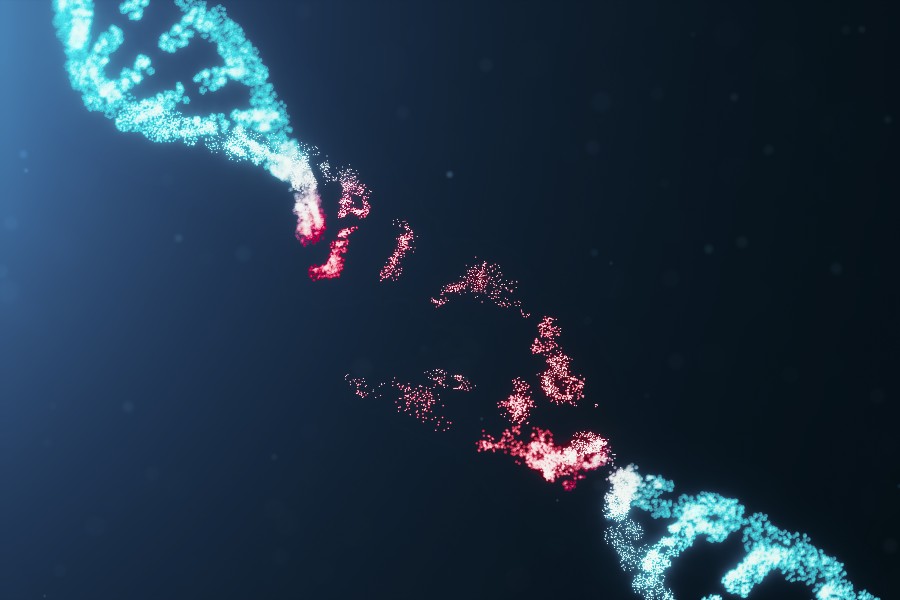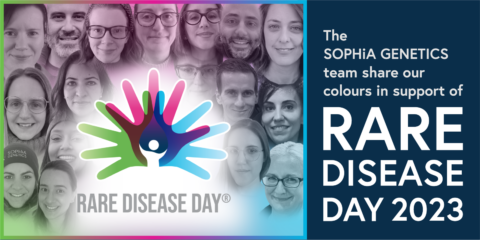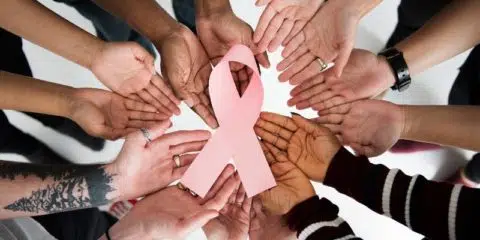In the heat of the summer there’s no place most people would rather be than the beautiful outdoors. These days, our limited time outside with friends and family is precious. But while we all get swept up by the seasonal fun in the sun, it’s easy to forget about that range of invisible, yet harmful UV rays.
In recent years, our thinning atmosphere has allowed those rays to reach us at increased levels. As skin cancer concerns increase, what lies within your genetic makeup may tell a larger story as to how those harmful rays affect us individually.
How do my genes relate to skin cancer?
Many studies show that ultraviolet rays from the sun, and even artificial sources like tanning lights and beds, can increase your risk of developing skin cancer. They can also cause premature aging, liver spots, and damage your eyesight. This is because UV rays cause carcinogenesis — corruption of healthy cells that form cancer cells — by damaging and mutating your DNA. But, your genetics play a role in determining how your body will react to those UV rays at a molecular level.
A common phrase you may hear at the beach is, “I burn easily.” It’s clear that certain skin types tend to have more severe reactions to the sun. Those reactions are often more than skin deep and need to be studied beyond what the eye can see. Some inherited genetic mutations are red flags to a clinical genomic researcher. These biomarkers aren’t easy to spot, but if they’re present, they could indicate how susceptible the skin is to being damaged by the sun.
Decentralized Next Generation Sequencing (NGS) drives personalized medicine
By analyzing a sample of tissue or blood, NGS can draw upon large sets of complicated biological data to show physicians many possibilities about an individual’s health at a very precise level. However, the challenge is being able to navigate through the endless sets of molecular data that these sequencing tests can produce.
Advancements in artificial intelligence technology and the expertise of bioinformaticians can simplify the most complicated sequencing of our molecular data. With expedited in-house analysis at local labs, personalized treatment plans or paths for preventative skin care can be discussed between the patient and the doctor well before any health irregularities become obvious or concerning. Expedited in-house analysis for regional labs eliminates the often-lengthy step for local researchers needing to send samples to larger sites for this kind of in-depth analysis.
Personalized care starts with you
The best place to start is by taking the proper steps to protect your skin from UV rays. Make sure you read the label on your sunblock of choice. Not all are created equal. Some sunscreens protect against larger ranges of ultraviolet light than others. Recently, some sunscreens have been recalled for containing cancer-causing chemicals, so it’s important to know what you’re putting on your skin beyond just a simple SPF check. The American Cancer Society offers plenty of resources for you to research the best preventative care for you.
SOPHiA GENETICS has technology that advances skin cancer research around the world through democratized Data Driven Medicine. The goal is to enable preventative care paths for the individual and to give clinicians the research they need for cancer breakthroughs and discoveries. To learn more, check out our complete portfolio of SOPHiA DDM™ solutions for oncology or get in touch with one of our experts today.












